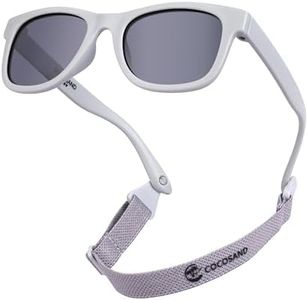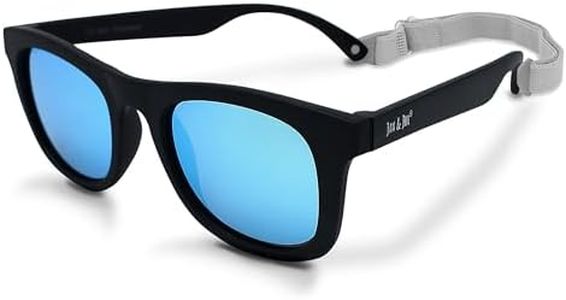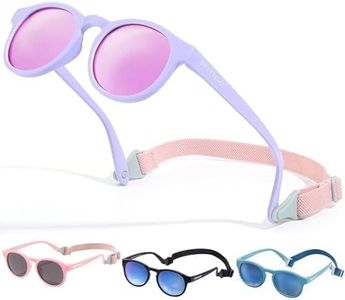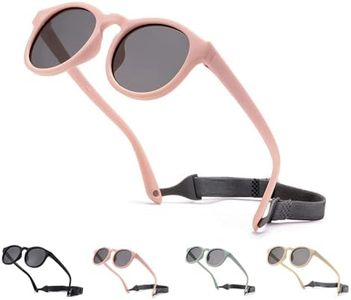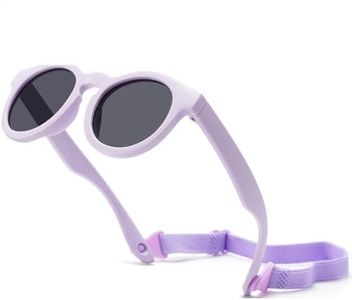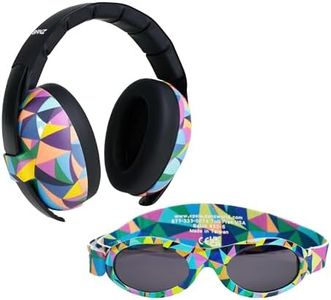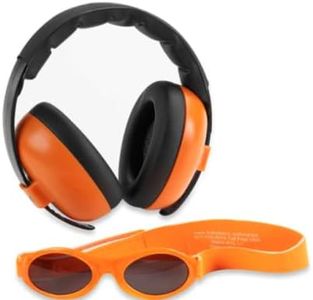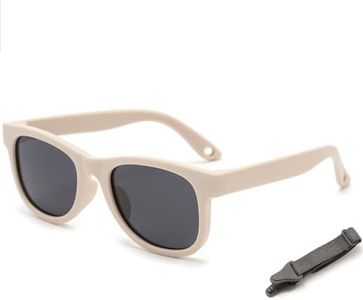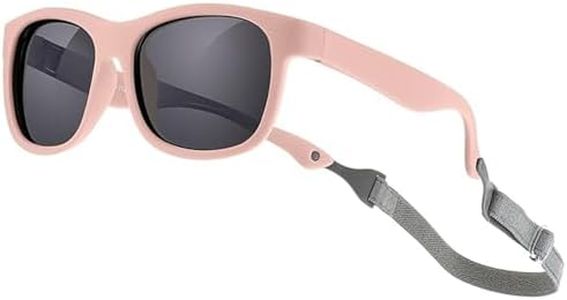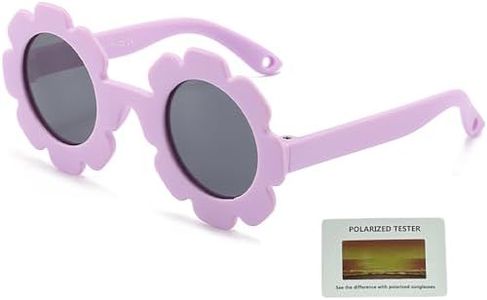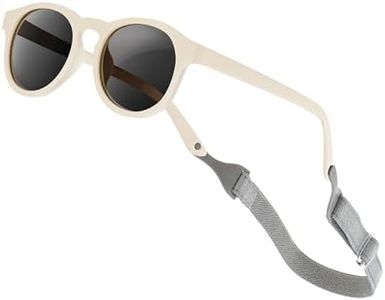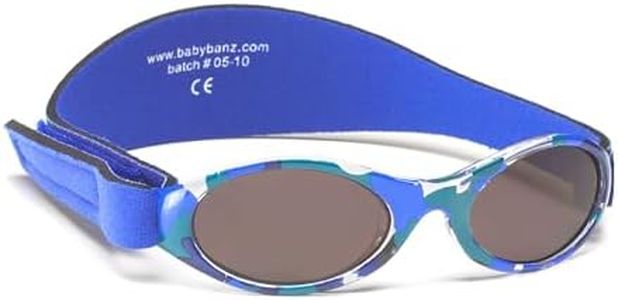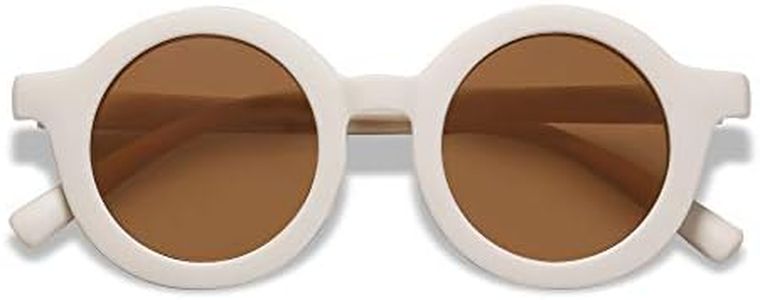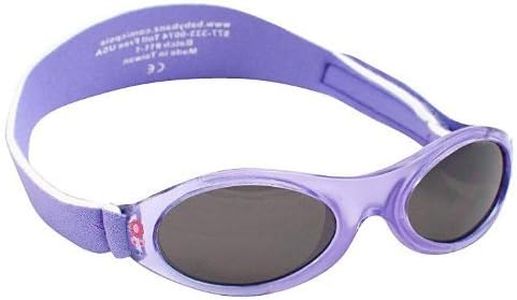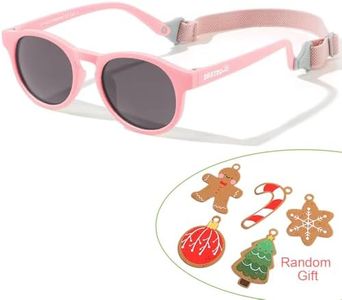We Use CookiesWe use cookies to enhance the security, performance,
functionality and for analytical and promotional activities. By continuing to browse this site you
are agreeing to our privacy policy
10 Best Baby Sunglasses
From leading brands and best sellers available on the web.By clicking on a link to a third party's website, log data is shared with that third party.
Buying Guide for the Best Baby Sunglasses
Choosing the right baby sunglasses is important for protecting your child’s sensitive eyes from harmful UV rays. Baby eyes are more vulnerable than adult eyes, so getting a pair with proper protection and comfort can make a big difference. Consider where and how often your baby will use them, such as at the beach, park, or just while out and about. Focus on glasses that are safe, comfortable, and practical for little ones. Your baby may not be able to tell you what's comfortable, so watch for signs of irritation or discomfort.UV ProtectionUV protection indicates how well the sunglasses shield your baby's eyes from the sun's ultraviolet rays, which can cause long-term damage. The most important thing is to look for lenses labeled as offering 100% UVA and UVB protection. Some may be labeled as 'UV400', which means they block all light rays with wavelengths up to 400 nanometers, covering both UVA and UVB. Always select sunglasses that guarantee this level of protection, as lower levels might not be sufficient for your baby’s delicate eyes.
Lens Material and TypeLens material affects both the clarity and safety of the sunglasses. Polycarbonate lenses are usually recommended because they are lightweight, shatter-resistant, and safe for babies who may drop or chew on their sunglasses. Some lenses are also polarized, which can help reduce glare from reflective surfaces, making them a good choice for outings near water or snow. If you'll mostly be outdoors in normal conditions, non-polarized lenses are typically fine, but if you plan a lot of time by the beach or in very bright environments, consider polarized lenses.
Fit and ComfortFit and comfort are crucial for keeping sunglasses on your baby's face and preventing irritation. Look for glasses with a flexible frame that gently hugs the head without pinching. Many are designed with a wrap-around style or an adjustable strap to keep them in place during activity. If your baby seems uncomfortable or the glasses slip off easily, try a different shape or size. Baby sunglasses should stay securely on, but not leave marks or cause your baby to fuss.
Frame Material and SafetyFrame material determines how comfortable and safe the sunglasses are. Choose soft, flexible frames made from baby-safe materials like BPA-free silicone or rubber; these are less likely to snap or hurt your baby if they are twisted or chewed. Harder plastic frames can be less comfortable and might break more easily. Look for rounded edges and no small removable parts that could become a choking hazard.
Adjustability and StrapsAdjustability is important because a good fit helps keep sunglasses in place and makes them more comfortable for babies who move a lot. Many baby sunglasses come with an elastic or adjustable strap that fits around the back of the head. This helps prevent the glasses from falling off and can also ensure a snug fit as your baby grows. If your child has a larger or smaller head, choose a pair with a highly adjustable strap to get the best fit.
Ease of CleaningSunglasses for babies inevitably get dirty, so look for models that are easy to clean. Lenses and frames made of smooth, washable materials make it simple to wipe away smudges, drool, or food. Avoid models with textured or fabric parts that are difficult to keep clean. If you'll be using them regularly, especially outdoors, easy cleaning will save you time and help keep your baby’s eyes safe from dirt and bacteria.
